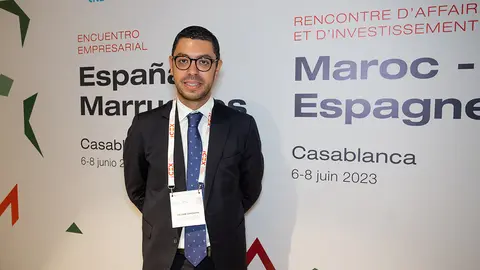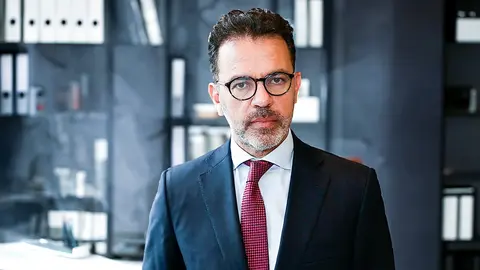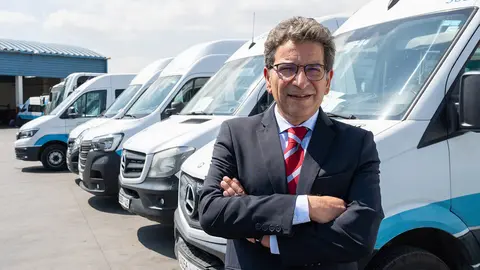"I hope that Autasa will be an example, Morocco offers many possibilities"
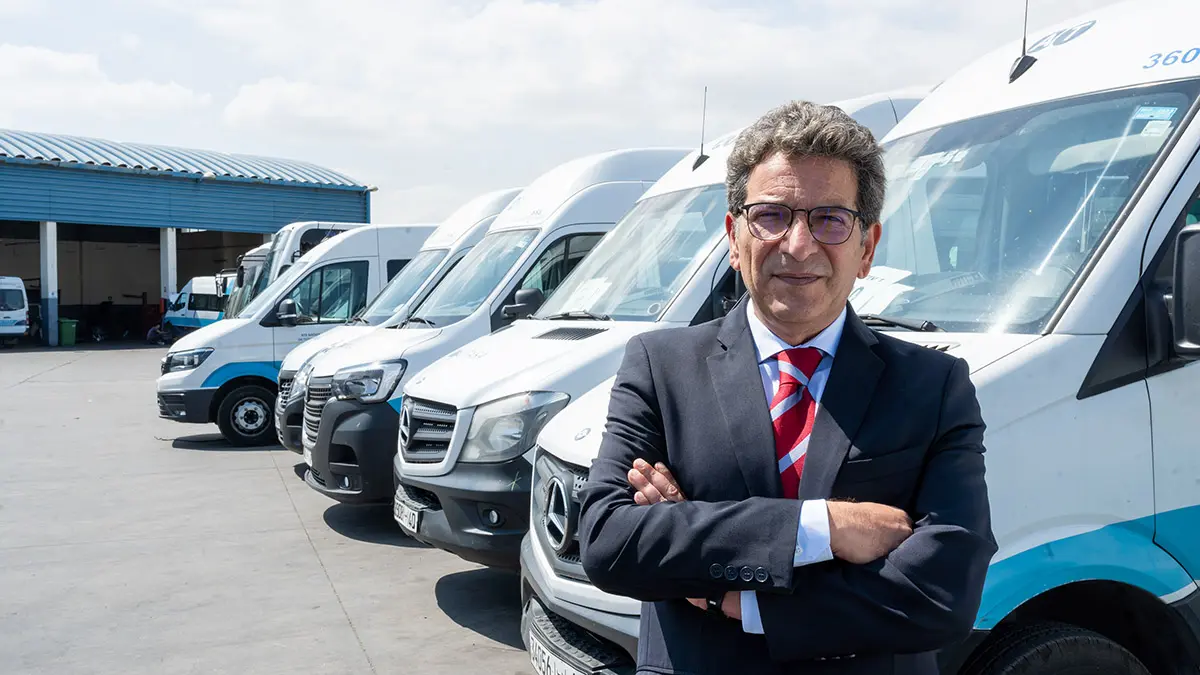
Casablanca hosted the 3rd Spain-Morocco Business Meeting with the aim of promoting investment by Spanish companies in the North African country. In this setting, Atalayar was able to talk to Luis Carlos Fernández, general manager of Autasa, to discuss the key investment opportunities in the Moroccan nation and the possibilities of his company, which is present in Tangiers, Kenitra and Tetouan.
What is Autasa? What is the work, the service offered by a 100% Spanish company, established in Tangier for many years now?
Autasa arrived in Tangier 22 years ago to take charge of the city's urban transport. We were developing this urban transport until 2013 and in 2008-2009 we entered a new sector which was the transport of personnel and, since then, we have been developing our activity in this sector. We cover the large companies in Tangiers, Renault... at the highest possible level, with a lot of technology, a lot of structure, continuous training, these are our values.
How many vehicles and what type of vehicles does Autasa have?
We currently have 310. 310 vehicles with very different capacities, from vehicles with 8 or 9 seats to 19, 20, 22, to large capacity vehicles with 40-50 seats. In other words, we have the whole range that our clients may need covered.
What is the added value that Autasa offers? Technology?
Of course, technology is a key element. And also quality jobs. I believe that these are the two most important things that we have, and technology, without a doubt, is continually advancing and we are at the forefront of the latest generation in terms of the technological means that we bring from Spain, we are already working with them in our companies in Spain and we are bringing them to Tangiers. And we work very well with them and the customer appreciates it, no doubt.
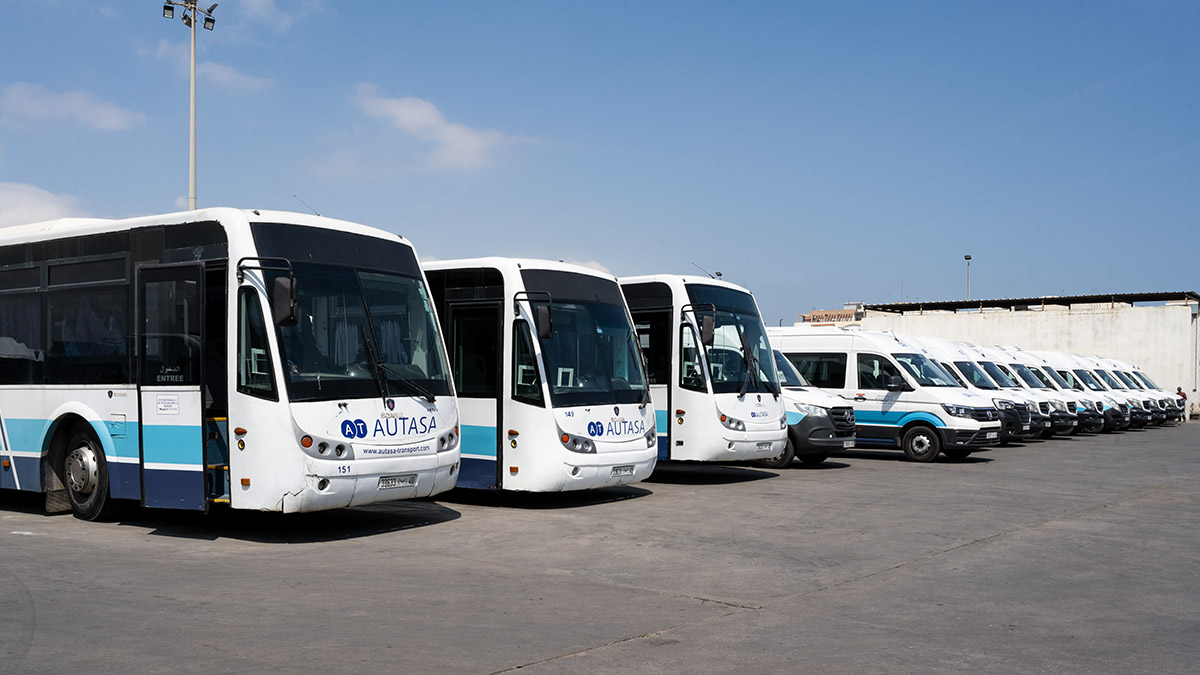
In Tangiers they also have the workshops...
We have workshops there. Autasa has workshops with 53 people, we cover all kinds of needs that our vehicles may have: bodywork, paintwork, mechanics. Absolutely everything, we don't outsource anything outside, and we do everything in-house.
The control room has a good computer system. Do you know where each vehicle is? What speed? What are they doing? How many passengers are they carrying? Explain that to us.
At all times. It's fundamental, but it's not only fundamental for us, it's that our customers have the same information in real time. Where our entire fleet is, what service it is doing, the speeds it is doing, the possible inconveniences that the route may have, we detect them immediately and we remedy them. This information is basic, there are 300 vehicles, if you don't have it like that, it is difficult to control, so it is fundamental for a transport company here to be in these conditions.
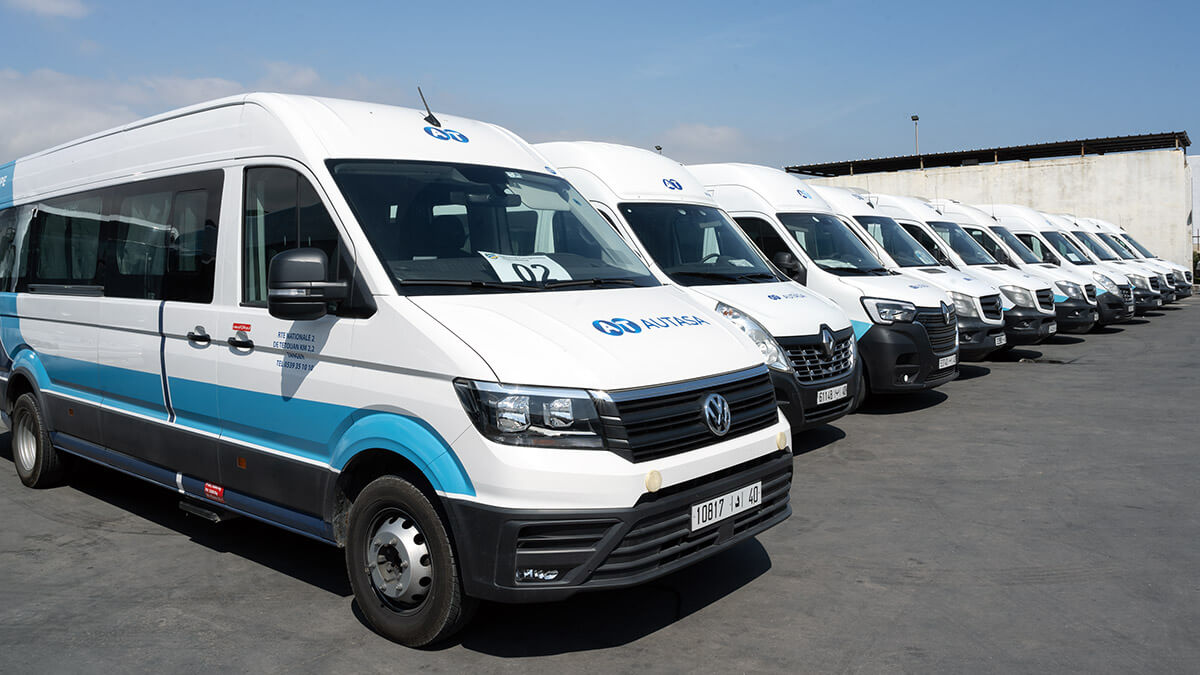
But this also implies a planning service for the clients, to know which personnel will be available, to be able to foresee their own work, their own services to their clients. It is a fundamental support.
From the moment we start the route, our clients know which person has boarded each minibus, so that they can control any absenteeism they may have and at the same time be able to correct this absenteeism through other people so that the production lines do not fail, are not cut and work.
Right now, what could be the most immediate objective, and what step does Autasa plan to take? Because in principle it is in Tangiers, Kenitra and Tetouan. Are there any plans to expand?
We came here 2 or 3 years ago with the idea of establishing ourselves and putting down roots, and that idea has not changed. We are continually studying investment projects to enlarge this family even more in other cities, in the cities where we are, it doesn't end here. If the opportunity arises, we will grow in the world of transport, which is our world, and we will move forward. Morocco is a country to invest in and to be in. We saw it 22 years ago, we believed it had great potential and we still think so. This country has great potential.
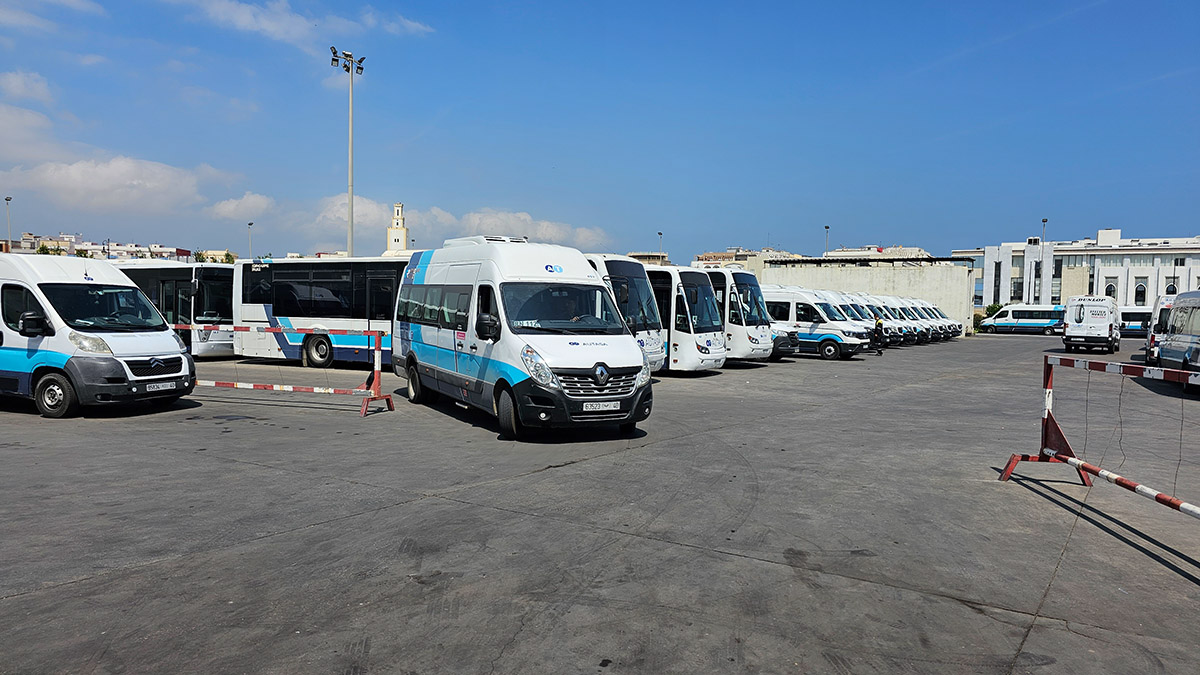
Yes, because the process of modernisation and development in Morocco is...
Extraordinary. You can see it in the cities, you can see it in everything, the Tangiers I knew 22 years ago has nothing to do with the Tangiers of today. Infrastructures, modernisation of absolutely everything, it is marvellous how this country is progressing and where it is going.
Perhaps also in mentality and training, because often in Spain there is this cliché, this bad idea of the indolent Moroccan, who doesn't work. On the contrary, what you find here are people who are already on a very important path of professionalism, training and improvement, businessmen speaking English, they are in constant progress.
I think that for many years now the Administration has realised this, that training is fundamental, the training of the people, and professionals are already being trained here in all sectors, very competitive at the levels that we can have in Europe, in other words, this country is investing in it and we are already seeing the results.
Autasa has a special interest in driver training, in safety beyond control and activity, in safety at the wheel, right?
We have been providing continuous training for some time now. Not only for our drivers, but also for the drivers of our partners, so that our entire service is continuously trained. This is a requirement for us as a company, and ISO certification also requires us to carry out all these types of processes.
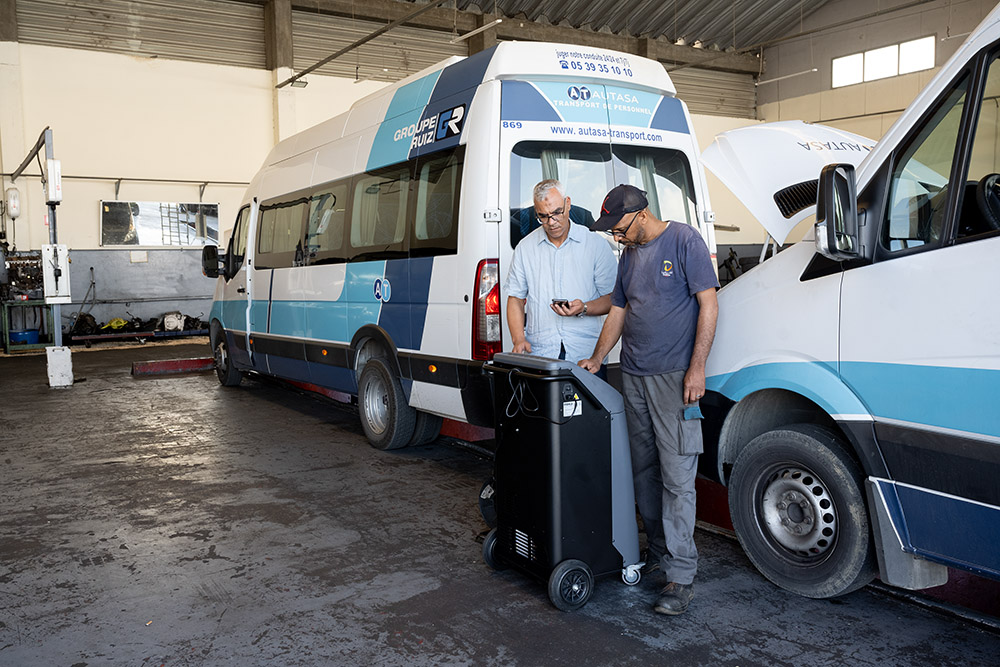
What has the relationship with the administration been like, and how has it evolved? Right now, Morocco has changed its Investment Charter to attract investments not only from Spain, but also from many other countries. What is the relationship? The ease of bureaucracy? What is your experience in this regard?
I think it has also evolved, like everything else, and it has evolved better. The relations that we can have with the administrations, different administrations, are good, cordial, fluid. Bureaucracy no longer hinders you so much, everything is moving forward, there are still many things to do, but we are on that path. In other words, I think that Morocco has also made a lot of progress in that sense.
What about the relationship with Moroccan companies, and what is their mentality? We have seen how the automobile sector has evolved, Renault is now almost the leading company in Morocco, even in terms of revenue, ahead of phosphates. But Tangier has an industrial estate, fantastic companies, including Spanish ones, right?
I think that the automotive sector in Tangier is the number one business and industrial sector at the moment, with all the free zones that have been created, because it is not that it only has one free zone, it is that Tangier has three free zones and they are full of companies, Spanish, German, French multinationals, that come here to set up here and the automobile is undoubtedly one of the biggest economic engines that this region has right now. Then there is the textile sector, where there are many Spanish companies working. But perhaps these are the two sectors that are working the best right now in Tangier and continue to grow, the free zones are running out of room.
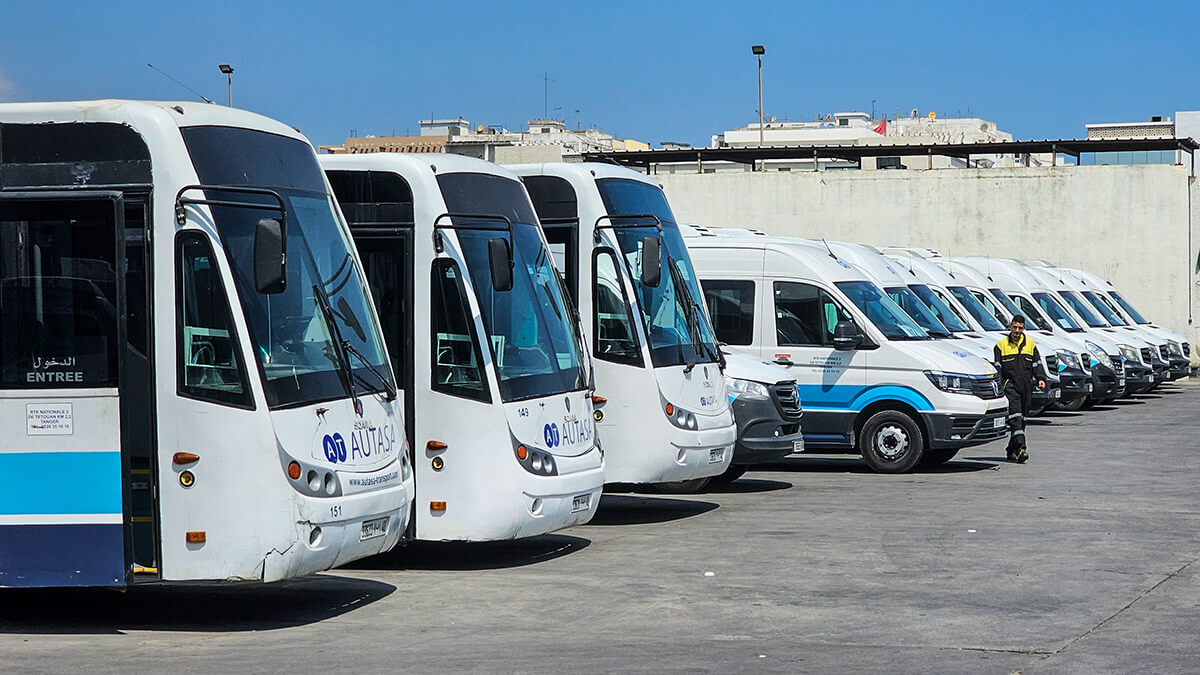
Moreover, Tangier Med, the port started with Tangier Med, now there is Tangier Med 2 and we will see if they expand it because the port is also an important point for the development of Tangier, isn't it?
Very important, of course, and it is working one hundred percent and very well. What we Spaniards thought at first was going to be the competition of Algeciras and that we were going to have problems, I think that they can coexist and in fact they are both working perfectly, and Tangier Med is evolving strongly.
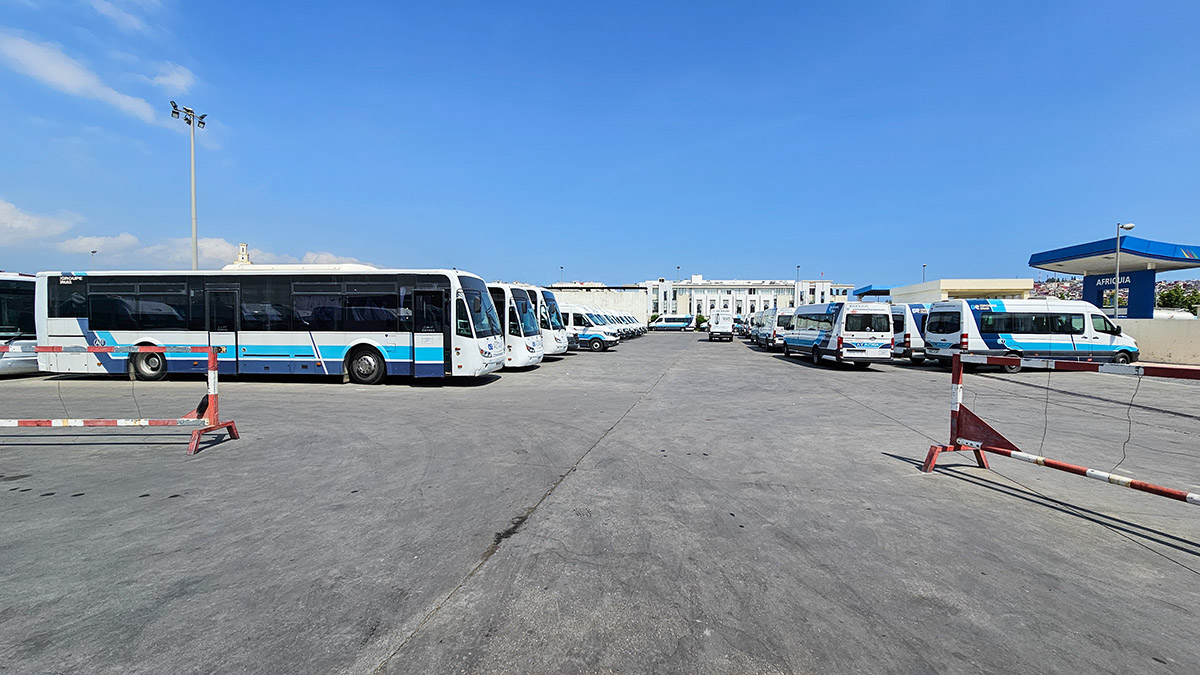
From your perspective - and, moreover, experience, long experience here - can we think that the interests of Spain and Morocco are complementary rather than contradictory or opposed? Especially on the issue of Ceuta, Melilla and the Sahara.
We will leave these political issues to one side, but the interests are complementary. They always have been and should continue to be. We are not on one side of the street and the other on the other, as neighbours. Enemies, not at all. Not at all, and in business terms, of course, they are one hundred percent complementary.
In this sense it is being demonstrated, because right now trade exchanges for the year 22 I believe reach 20,000 million euros. And it will go up, won't it? What are Autasa's prospects for the next 2-3 years? Bearing in mind that there is a crisis with food prices, energy prices, the war in Ukraine, etc., Autasa's current outlook is good.
Autasa's current outlook is good with the projects we have on the table and if they crystallise, we will double or triple our current capacity. Of course, we intend to continue to invest in this country because we understand that there are opportunities for it, there are great business opportunities. And I believe that we Spaniards have a lot to say here, we don't have to let ourselves be left behind, we don't have to let the French eat our ground as usual, we can do it perfectly well.
And something that is perhaps not well known in Spain, stability and legal certainty.
This country is stable, I have been here for 22 years, it is stable, legal certainty is improving all the time. The principle of legal certainty, which is fundamental for any company, I believe it can be found in Morocco. So, the foundations are there, you just have to come, study very well, because you cannot enter a market without knowing it, this is not the same market as the Spanish one, you have to get to this country, get to know its culture, get to know the country, invest and develop. If you don't do this with these steps, you might not do so well.
And the attitude, I think that they too, what they value is coming with an attitude of respect, as equals, because we are not smarter and they are not dumber, nor vice versa.
Whoever comes with this attitude leaves. No one has been maintained. We are not better looking, we are not smarter, we are not better. You can't come here with that mentality because you won't succeed, it's clear, always with respect, you are the one who comes here, you are the guest who comes here, how can you not respect the house that welcomes you? It is fundamental.
Operation Crossing the Strait begins. It's a challenge every year, millions of people coming and going. How does that affect Autasa? Because part of Autasa is also working in the port, isn't it?
We at Autasa Med, which is one of the companies we have here, we manage the passage from the ships to customs, we manage the whole journey. How does this affect us? Well, we have to bring in reinforcements, every year we bring in one or two more reinforcement vehicles so that this can be carried out. Of course, it is an important manoeuvre, there is an incredible amount of people passing through, but every year it has been done well and there is no problem, I mean, it works and it works well. Just like we do on the other side of the river.
Moreover, for them, Operation Marhaba is fundamental, and to use as little time as possible, because they come from France, from Belgium, from Germany, to spend their holidays with their families and return.
This is one of the things that the Mediterranean port has improved, before they used to pass through Tangier and you don't know what was going on in Tangier, Tangier literally collapsed, because there were no roads to accommodate this continuous influx of cars. Everything was taken to the Mediterranean port and everything was solved. The city continues to live normally. There is no problem and from the Mediterranean port they go south, or they come to Tangiers, wherever they go and there is no problem.
And an image of the development is the cars, that is to say, you don't find those old cars loaded to the top, they come loaded, but they are more or less new cars. This renewal of the car fleet gives you an image of progress, both for the Moroccans in the diaspora, who are living in Europe, and also for the Moroccans who are here.
Yes, without a doubt, cars are a true reflection of the family economy, of how it is going, and indeed, all of this has evolved for the better.
What is the perception that you receive from the workers that you are transporting, of what your service is like? What feedback do you get?
We have some surveys, some internal quality surveys with the different annual clients, and these quality surveys show that we have a high level of acceptance. That's one of the reasons why we stay in business. It is one of the reasons why the different multinationals choose us. In other words, there is this testing by the staff of the companies and they see the satisfactory service that exists and it is positive.
Finally, is there any aspect that we haven't touched on that you would be interested in conveying about Autasa, its objectives, its work, the added value it offers with technology?
I think we have talked about it, haven't we? Well, what we offer, what we want and what we are willing to do. What I hope is that Autasa will be an example for those who are hesitating to take the leap, to tell them to take the leap, to take the leap because this country offers many possibilities and it is a country with security where we can invest and develop our projects. Perhaps that is the message.


